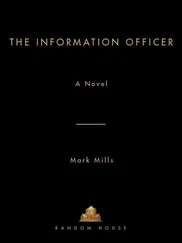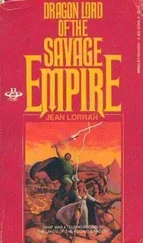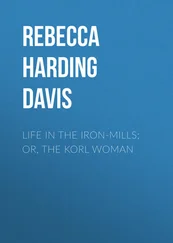Mark Mills - The Savage Garden
Здесь есть возможность читать онлайн «Mark Mills - The Savage Garden» — ознакомительный отрывок электронной книги совершенно бесплатно, а после прочтения отрывка купить полную версию. В некоторых случаях можно слушать аудио, скачать через торрент в формате fb2 и присутствует краткое содержание. Жанр: Старинная литература, на английском языке. Описание произведения, (предисловие) а так же отзывы посетителей доступны на портале библиотеки ЛибКат.
- Название:The Savage Garden
- Автор:
- Жанр:
- Год:неизвестен
- ISBN:нет данных
- Рейтинг книги:4 / 5. Голосов: 1
-
Избранное:Добавить в избранное
- Отзывы:
-
Ваша оценка:
- 80
- 1
- 2
- 3
- 4
- 5
The Savage Garden: краткое содержание, описание и аннотация
Предлагаем к чтению аннотацию, описание, краткое содержание или предисловие (зависит от того, что написал сам автор книги «The Savage Garden»). Если вы не нашли необходимую информацию о книге — напишите в комментариях, мы постараемся отыскать её.
The Savage Garden — читать онлайн ознакомительный отрывок
Ниже представлен текст книги, разбитый по страницам. Система сохранения места последней прочитанной страницы, позволяет с удобством читать онлайн бесплатно книгу «The Savage Garden», без необходимости каждый раз заново искать на чём Вы остановились. Поставьте закладку, и сможете в любой момент перейти на страницу, на которой закончили чтение.
Интервал:
Закладка:
"Are you enjoying your meal?" Gaetano inquired.
The clothes might have been discreetly elegant, but the hand that Adam shook spoke of a life spent working the soil.
"Yes. Thank you."
Gaetano nodded approvingly. "The best fish stew in Viareggio."
"Yes, it's excellent."
"Good. I'm pleased."
It was only as Gaetano moved on to the next table that Adam realized he'd been doing no more than performing his patronly duty, checking up on his customers, ensuring that all was well. He cursed himself for missing the opportunity to strike up a conversation.
Maybe the tour of the diners was Gaetano's last act before breaking for the night and heading home, because he was nowhere to be seen in the bar when Adam headed back downstairs. The two men Gaetano had been sitting with were still in the corner booth, slouched and nonchalant in their short sleeves, and they had been joined by an elderly man and a young woman, both of whom had evidently taken too much sun that day. A faint ray of hope came with the sight of a fifth wineglass on the table in front of them.
Adam was at the bar, waiting to order, when Gaetano appeared from a door behind the counter with a box of cigars. He exchanged a few words with one of the barmen, who set up a bottle of malt whisky and some glasses on a tray.
The moment a table came free, Adam pounced. He immersed himself in his book, happy to bide his time, ready to be the last to leave, if that's what it took. A while later, a woman placed her hand on the back of the chair opposite and asked in a sultry voice:
"Can I?"
She was tall, fine-featured, very attractive.
"Of course," said Adam, assuming that she wished to take the chair to another table. Instead, she lowered herself into it.
"Are you alone? Apart from that boring-looking book, I mean?"
"Er, yes."
"American?"
"English."
"On holiday?"
"Studying."
The woman slowly pulled a cigarette from her packet. "Is it your first time in Viareggio?"
"Yes."
"Where are you staying?"
"A pensione over there." He waved his hand vaguely in the direction of the bar.
"Oh, that one." She flashed a smile. "I'm Alessandra."
"Adam."
"You have lovely eyes, Adam."
"Thank you." "Do you also have a light?" She waggled the unlit cigarette between her fingers.
"Of course. Excuse me." He fumbled for his lighter on the table.
"Leave the young man alone, Alessandra."
It was Gaetano.
"Oh, do I have to?" she pouted up at him.
"I'm afraid so."
Alessandra looked back at Adam. "The boss," she said with a mocking tone. "I think he wants you for himself."
"Very funny, Alessandra."
Alessandra leaned across the table, smiled sweetly and raised the cigarette to her lips. Adam lit it for her. "Spoilsport," she muttered to Gaetano as she sashayed off.
The only explanation Adam could come up with was that she worked in the world's oldest profession, and the management didn't want her plying her trade under their roof. He was wrong.
"Alessandra used to be Alessandro," Gaetano explained.
It took Adam a moment to assimilate the news. The timbre of the voice had been the only giveaway.
"Really?"
Gaetano smiled at Adam's incredulity. "There have been . . . difficulties with some of the customers."
It was now or never.
"Can I offer you a drink? As a thank you, I mean."
Gaetano hesitated. "Sure." He shrugged.
Adam opted for a twelve-year-old single-malt Scotch. Gaetano nodded his approval and followed suit.
He sensed he had just the one drink in which to hook his fish or Gaetano would be off, back to his booth. He'd already settled on flattery as his opening gambit, and the tactic worked. Gaetano thanked him for his compliments about La Capannina, and was disarmingly humble in his reply. The building provided the great atmosphere, the chef the great food—he was just the owner. Some of this humility deserted him when he went on to explain that he had reversed the sliding fortunes of the place in under a year, and to such an extent that the previous owner was now kicking himself over the sale price. He had even approached Gaetano on the subject of buying back a stake in the business.
It was the book that clinched it, though, just as Adam thought it would. It was a big work on Italian Renaissance sculpture, loaded with pictures, and it didn't go unnoticed by Gaetano. When Adam explained that he was an art history student, Gaetano confessed to knowing a little about sculptures from that period. He mentioned a garden he knew—a garden attached to a grand villa near Florence. He talked about it as if stumbling across such a thing was one of the hazards you faced when mixing in the sort of circles he did. He certainly didn't say that he had spent a sizable chunk of his life cutting the garden's grass and pruning its laurel.
When Gaetano offered up a detailed and impressively vivid description of the garden, Adam found himself experiencing a strange sympathy for the man. The slightly desolate look that stole into his round, simian eyes suggested that years of exposure to the garden's unsettling atmosphere had also taken their toll on him.
Remembering his role, Adam reacted with enthusiasm, especially to the news that Flora, the goddess of flowers, was the linchpin of the cycle. He told Gaetano about Edgar Wind's new theory, published earlier that year, that not only did Flora figure in Botticelli's Primavera and his Birth of Venus but that her pairing with Venus was essential to the allegory of love buried in both paintings.
He had to hold himself in check when Gaetano quizzed him about the other sculptures in the garden. It was too easy to shine, too easy to give himself away. He shared a few further insights, just enough to impress. It seemed to do the trick. It was Gaetano who ordered the next round.
The bar had started to empty by the time the third round hit the table, and they were deep in a discussion about the war. It was Adam who had steered the conversation this way, looking for a tear in the tissue of lies that shrouded Gaetano's account of his life. He claimed to have been a partisan, which might or might not have been true, although it seemed unlikely. When he said he had witnessed bad things, Adam pressed him further. Gaetano wouldn't be drawn on the subject, except to say that war made monsters of men—good men, men of standing, men you thought you knew— he'd seen it with his own eyes.
Adam said he'd hardly witnessed anything of the war other than the odd plane overhead—the privilege of growing up on a remote farm, he lied. Casting himself as a country boy had the desired effect. Gaetano confessed to being one too, and he had a storehouse of tedious anecdotes to prove it. This new turn in their conversation also allowed him to hold forth on his favorite subject: land.
He was obsessed with it. Land equaled power. History proved it. And if land was the past, then it was also the future. Italy was changing. The ownership of land was being opened up to a wider constituency. Only a fool could fail to appreciate the opportunities this presented.
"I'm going to give you some advice," said Gaetano, leaning across the table, his eyes dimmed with drink. "You know the real reason you should buy land?" He paused for effect. "Because they can't make any more of it."
The man's boorish self-satisfaction was almost unbearable, but Adam managed to look impressed by the statement. "I hadn't thought of it like that."
"That's why I'm telling you."
Adam saw his opening and pounced. Land brought heavy responsibilities, he countered. It also incited passions, not all of them good. He'd seen it with his own family. Ownership of the farm had split his father's generation, dividing siblings, turning them against each other. On one occasion it had even come to blows between his father and his uncle.
Читать дальшеИнтервал:
Закладка:
Похожие книги на «The Savage Garden»
Представляем Вашему вниманию похожие книги на «The Savage Garden» списком для выбора. Мы отобрали схожую по названию и смыслу литературу в надежде предоставить читателям больше вариантов отыскать новые, интересные, ещё непрочитанные произведения.
Обсуждение, отзывы о книге «The Savage Garden» и просто собственные мнения читателей. Оставьте ваши комментарии, напишите, что Вы думаете о произведении, его смысле или главных героях. Укажите что конкретно понравилось, а что нет, и почему Вы так считаете.











